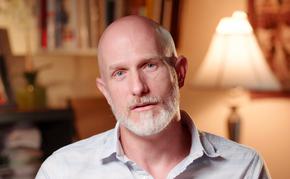The views expressed in our content reflect individual perspectives and do not represent the authoritative views of the Baha'i Faith.
The main reason you, and everyone else, deserves wealth is because … drumroll … you exist. You’re a human being who has a right to a decent life. Baha’u’llah, the founder of the Baha’i Faith, wrote:
Having attained the stage of fulfilment and reached his maturity, man standeth in need of wealth, and such wealth as he acquireth through crafts or professions is commendable and praiseworthy in the estimation of men of wisdom, and especially in the eyes of servants who dedicate themselves to the education of the world and to the edification of its peoples.
This does not mean you somehow deserve great or excessive wealth – instead, the fact that you exist means you deserve food, water, shelter, clothing, education, and all of the other rights and freedoms enshrined in the Universal Declaration of Human Rights.
RELATED: The Spiritual Meaning of Wealth
In most democratic nations those rights mean the right to vote, own property or dispose of it, to work and earn a fair wage and provide for yourself and family, and to pay taxes and receive government services, protections, and benefits for those taxes. Freedoms include the right to think, to vote, to speak your opinion, and peaceably assemble, to have a fair standard of living, a right to health and care, and more.
Realizing Our Universal Rights and Freedoms
Despite erratic setbacks in many places, the world has made and is making progress towards realizing those universal rights, mainly because masses of people demand them from their governments or rise up in protest when they are taken away.
Since 1948, when the UDHR was ratified, almost sixty countries have adopted republican or democratic forms of governance. Authoritarian rulers and despots have been dethroned or exiled, and constitutional governments formed. The ages of the absolute rule of kings and queens – who had previously governed for thousands of years, back to pre-biblical times – has passed almost entirely, with many now serving as figureheads like Elizabeth II, Queen of England.
When monarchies ruled, one person alone determined who received wealth and who was enslaved, whether a country went to war or not, which people received favor or contempt, who lived or died. Thankfully, most of the world has now graduated to more enlightened forms of government, and that democratizing process continues to take place.
Today, for many of the world’s nations, the state is the arbiter of the laws and rules governing their inhabitants. While some dictators still exist, almost universally their people long for universal freedoms. News can’t be hidden anymore in our wired and connected global world, and the truth gets out. People want the truth, and fairness, and their share of wealth and opportunity. Everyone on Earth wants the same basic right to live free and be happy.
How Did We Move Away from Absolute Monarchy?
Baha’is believe that Baha’u’llah’s new revelation helped precipitate this turnabout of absolute monarchies with his own declaration in 1868 that “From two ranks amongst men power hath been seized: kings and ecclesiastics.”
In his messages to the kings and rulers of the world, Baha’u’llah further proclaimed a progressive Baha’i movement toward liberty and democracy, unity and diversity, cooperation and peace. These ideals have inspired men and women from time immemorial, and today we are closer to fruition on a worldwide scale. We have entities like the United Nations and its dependencies, the World Health Organization, UNESCO, the World Trade Organization, and international unions like the European Union, NATO, the International Criminal Court, ASEAN, the G20 and many more, all providing stable interconnected frameworks that largely aim for sustainability, economic health, and the progress of fair standards for all humanity.
RELATED: The Relationship between Poverty and Justice
These organizations want to uphold and defend liberty so that human rights and peace can flourish, so that economies thrive not wither. If the economy is not thriving there are no or few jobs, and wealth is impossible. Like Val Valjean in Victor Hugo’s Les Miserables, we are forced to steal bread, and millions don’t have enough bread.
Having wealth doesn’t mean we all live in mansions or drive the newest cars. We all can’t. In his tablets, Baha’u’llah declared:
… man should know his own self and recognize that which leadeth unto loftiness or lowliness, glory or abasement, wealth or poverty. Having attained the stage of fulfillment and reached his maturity, man standeth in need of wealth and such wealth as he acquireth through crafts or professions is commendable and praiseworthy in the estimation of men of wisdom, and especially in the eyes of servants who dedicate themselves to the education of the world and to the edification of its peoples.
We all need wealth. Everyone deserves enough food to eat, a place to live, and a way to earn their sustenance. In the Baha’i vision of the future, we’ll all have those opportunities.

















Comments
Sign in or create an account
Continue with Facebookor